Mechanical tests
The
mechanical
characterization
of
materials
(tensile,
compression,
fracture,
bending,
...)
applies
a
wide
range
of
experimental techniques
to
determine
their
behavior
under
various
types
of loading
(monotonic
or
cyclic,
uniaxial
or
multiaxial)
and environmental conditions
(temperature,
humidity,
etc.).
The
Mechanical Testing
Laboratory
has
5
mechanical testing
machines
which, together
with
various
additional equipment and
environmental chambers,
enable to characterize
the
mechanical behavior of
all
materials
used
in
civil
applications
(concrete,
rocks,
metals,
polymers,
...)
subjected
to
diverse mechanical,
thermal
and
environmental actions.
The
mechanical tests
that
may be performed include
those
applying
tensile,
compression,
fracture,
fatigue,
etc..
forces.
The
available equipment
allow
to
perform uniaxial
or
biaxial
mechanical tests
under
monotonic
and
cyclic
loads.
To
record
data
from
tests,
a
wide
range
of
conventional
strain
gauge
systems
are
implemented:
resistive
and
capacitive
gauges.
The
behavior
of the
material
throughout
its
useful life
is
conditioned
by the
environment in
which
they
are,
and
the
interaction between environment and mechanical
loads
can multiply
the
effects
of
both.
To
evaluate
the
interaction
between
environment
and
materials, the
Laboratory
has
three
environmental
chambers
in
which temperature
and
pressure
conditions
are
constantly monitored,
simulating this way
freeze-thaw
conditions
and
other
common
environmental
phenomena.
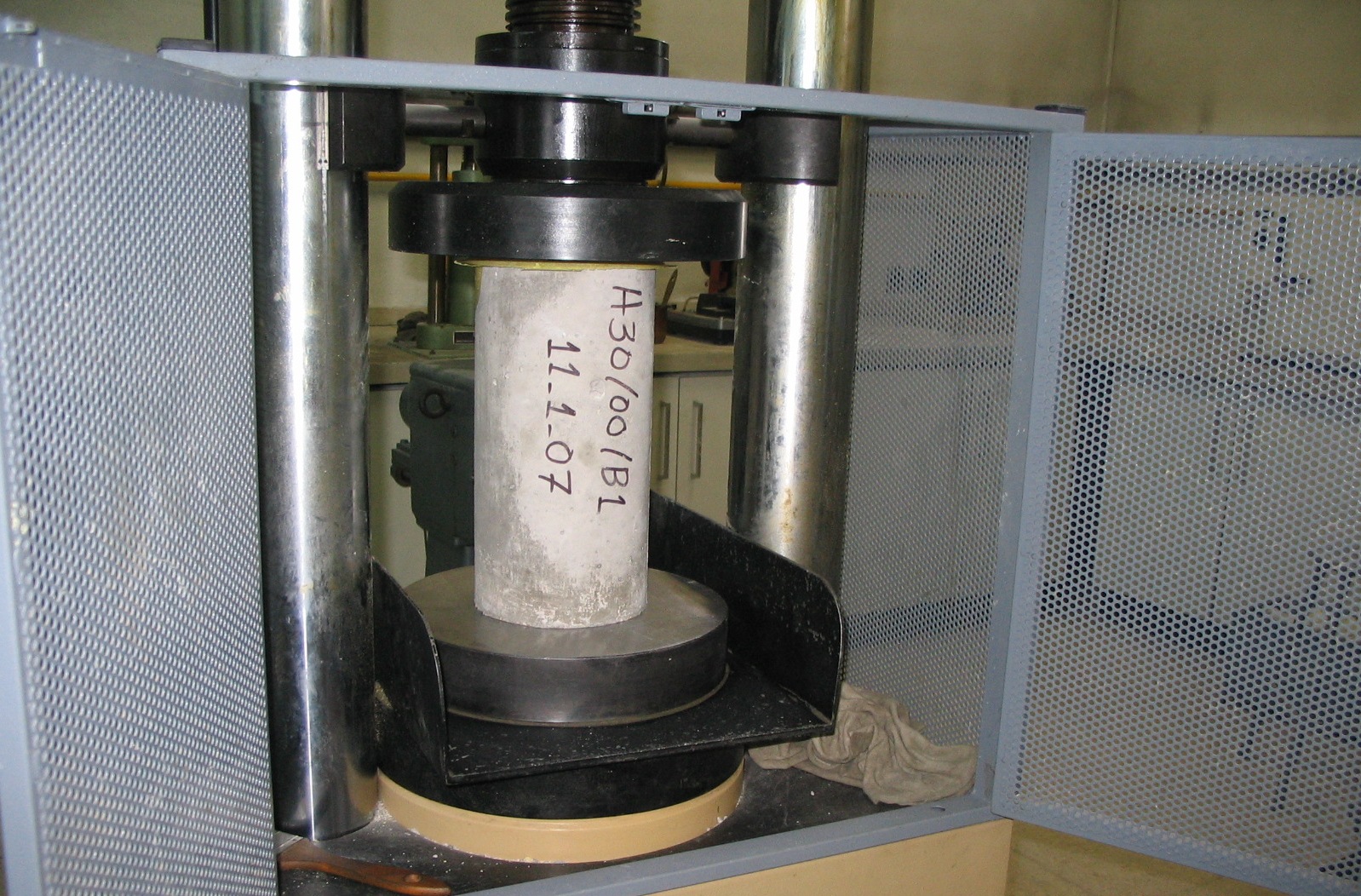 |
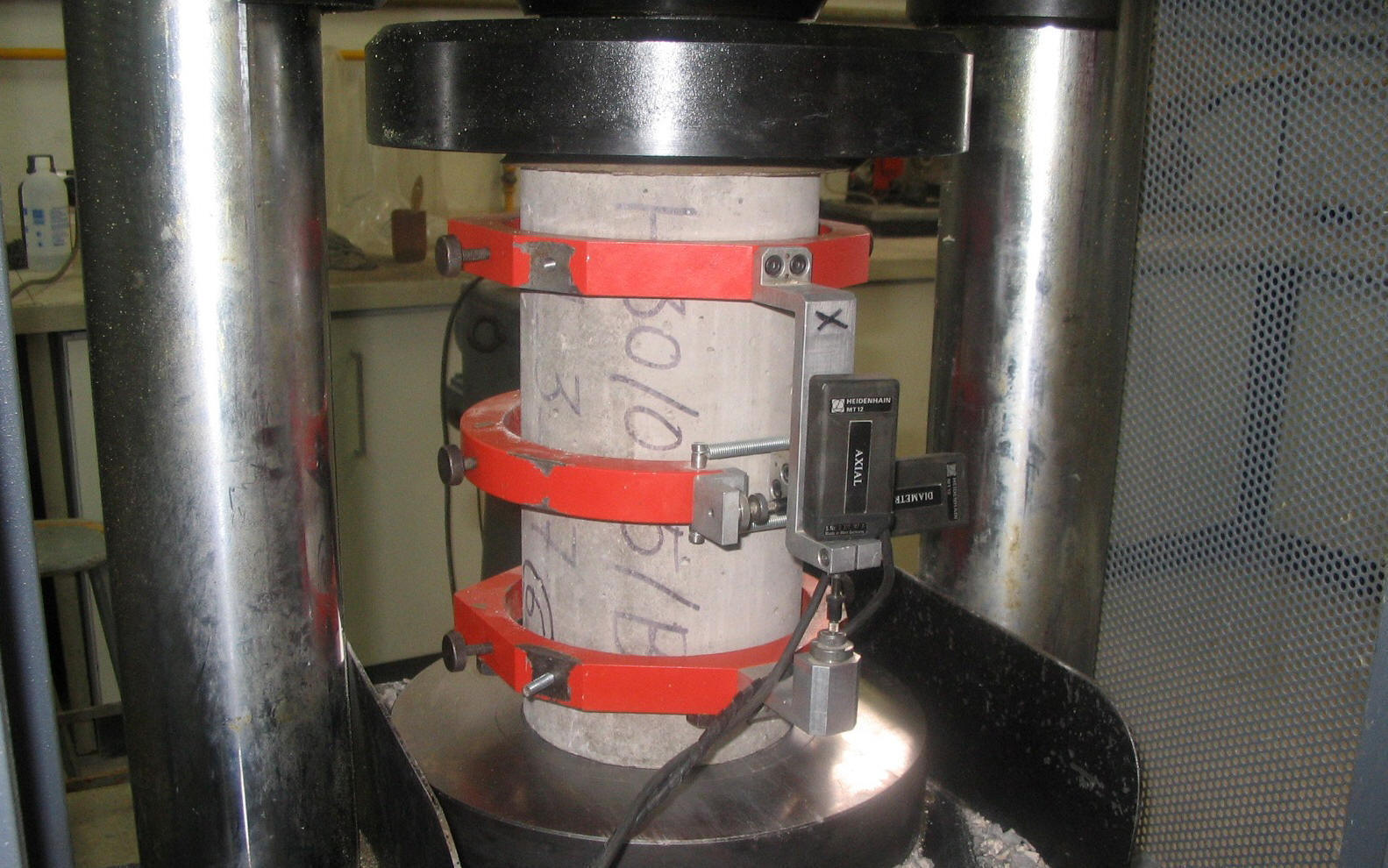 |
|
Measurement of compressive strength |
Elastic
Modulus measurement |
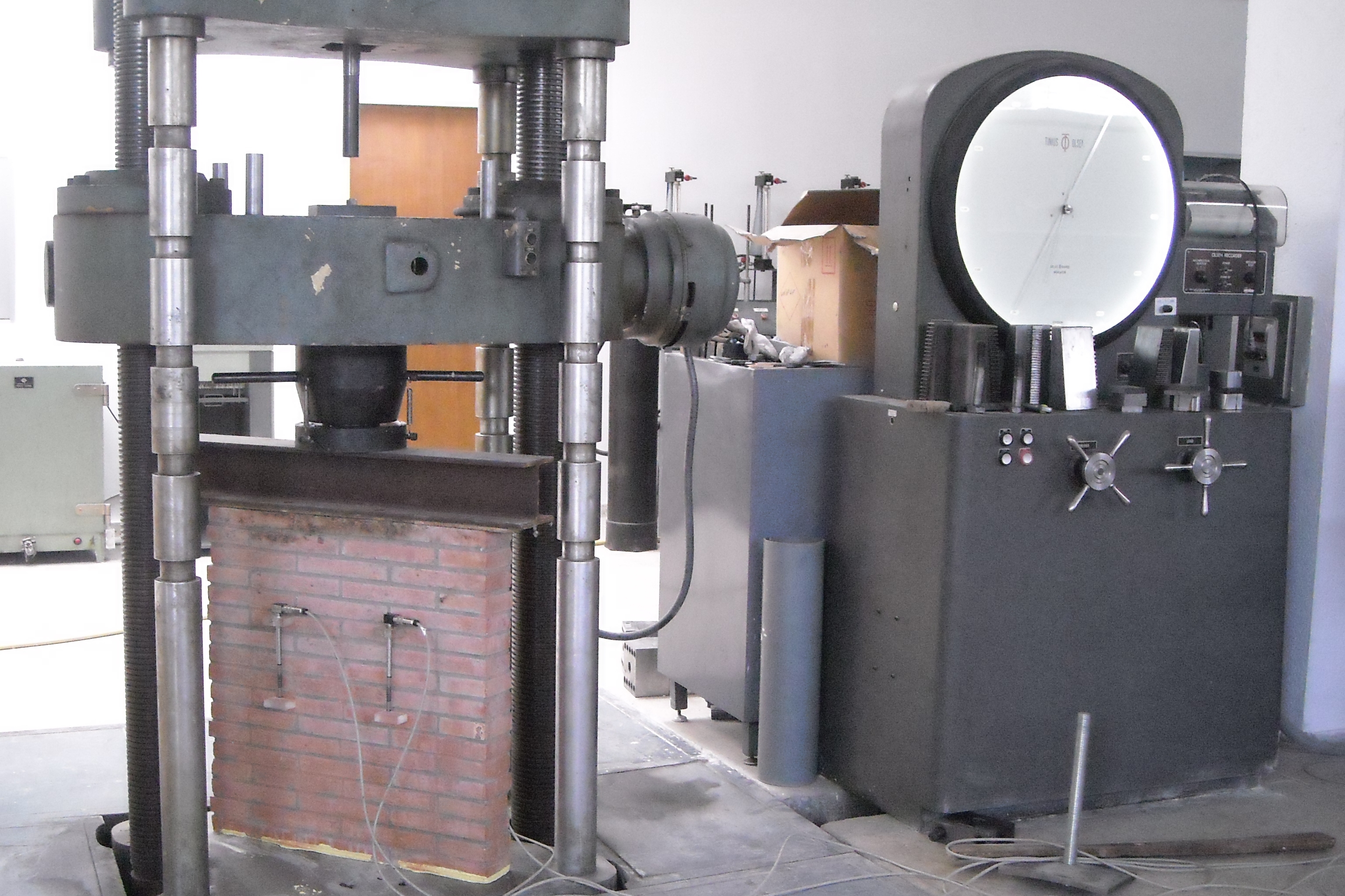 |
 |
| Compression
test of a masonry wall
|
Compression
test of a masonry pillar |
|
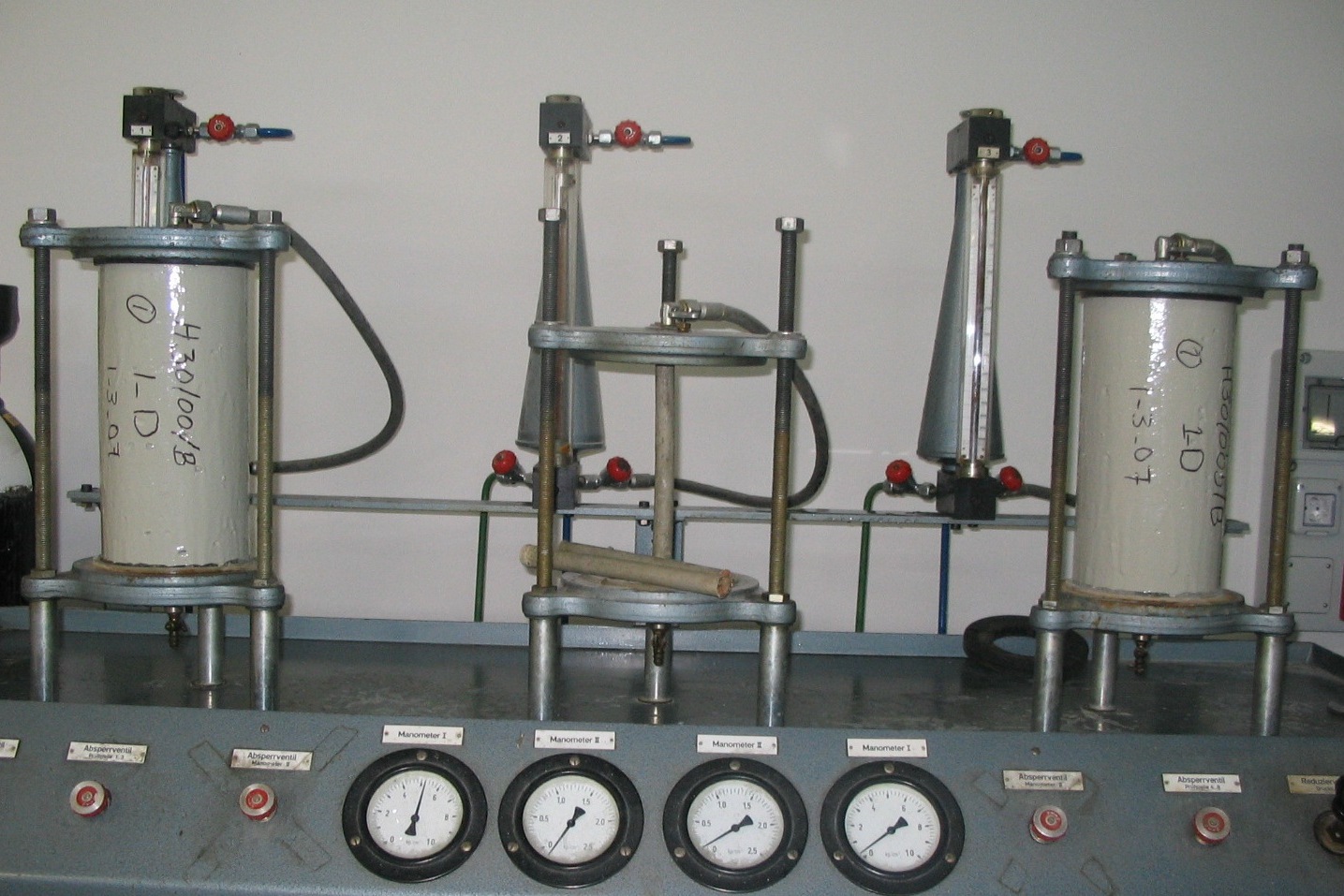 |
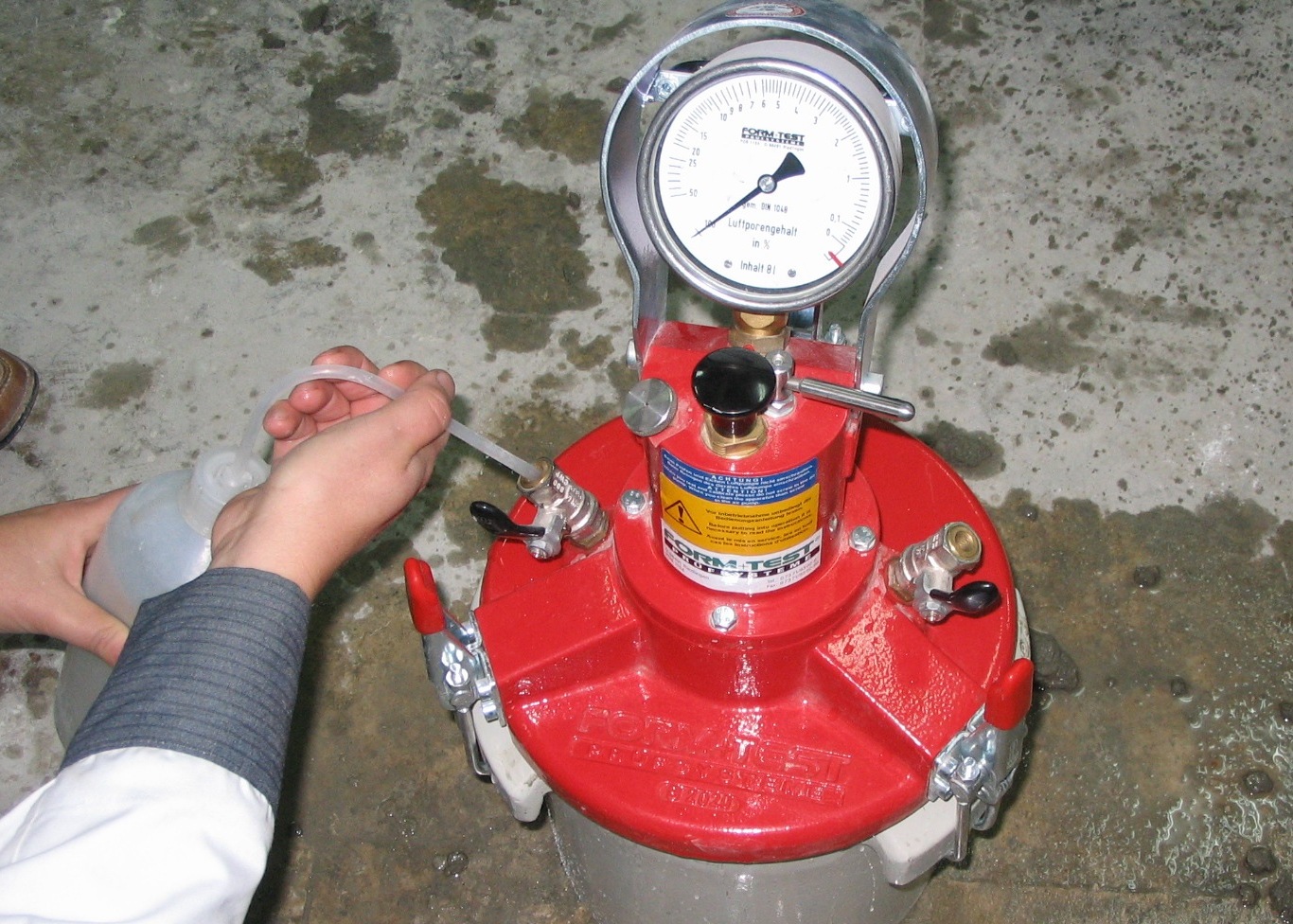 |
| Permeability
tester
|
Measurement
of air content in fresh concrete |
|
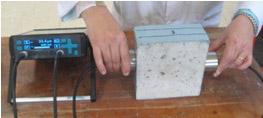
|
 |
|
Measurement of dynamic
modulus with ultrasounds |
Test tube with strain
gages |
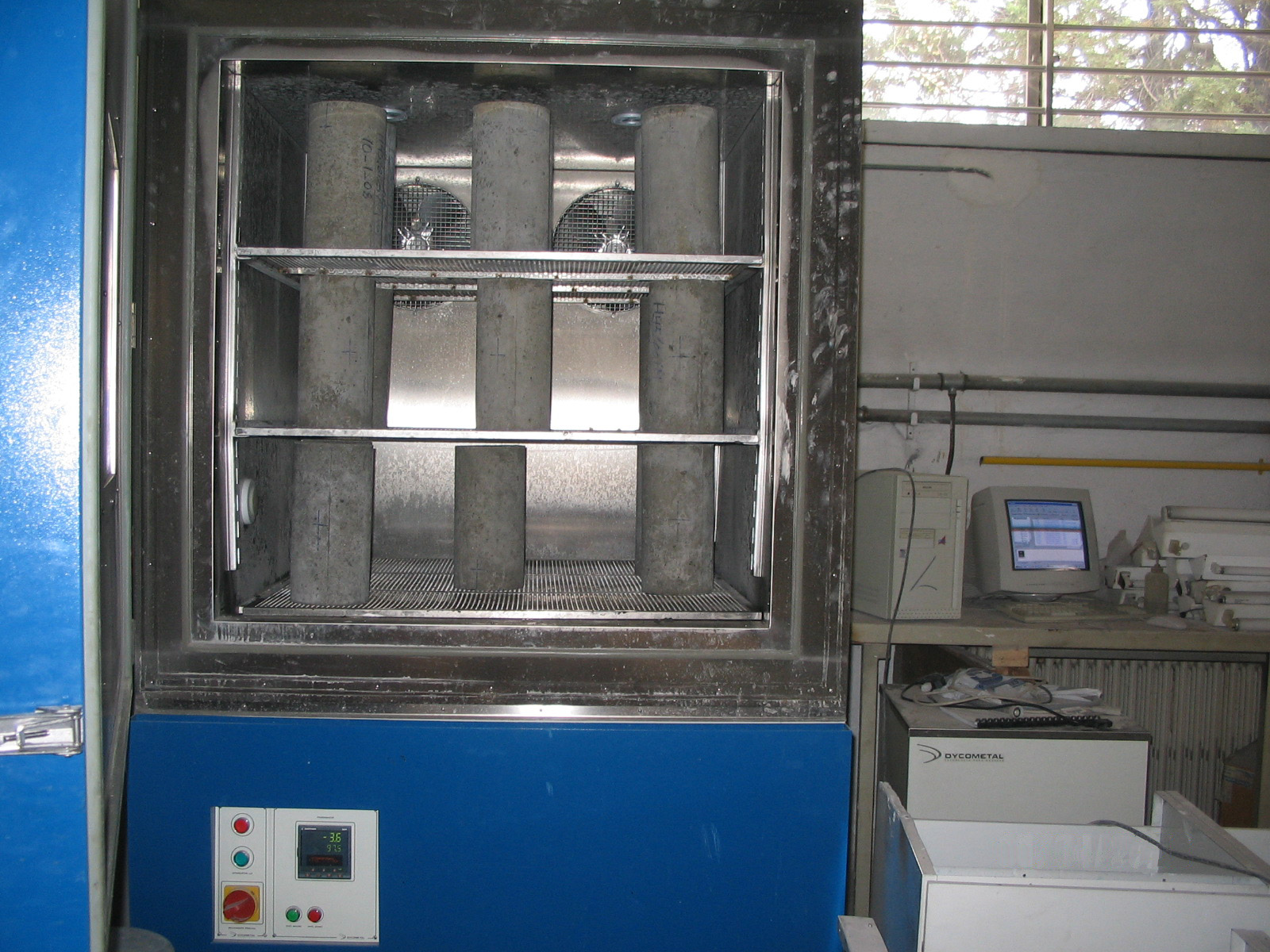 |
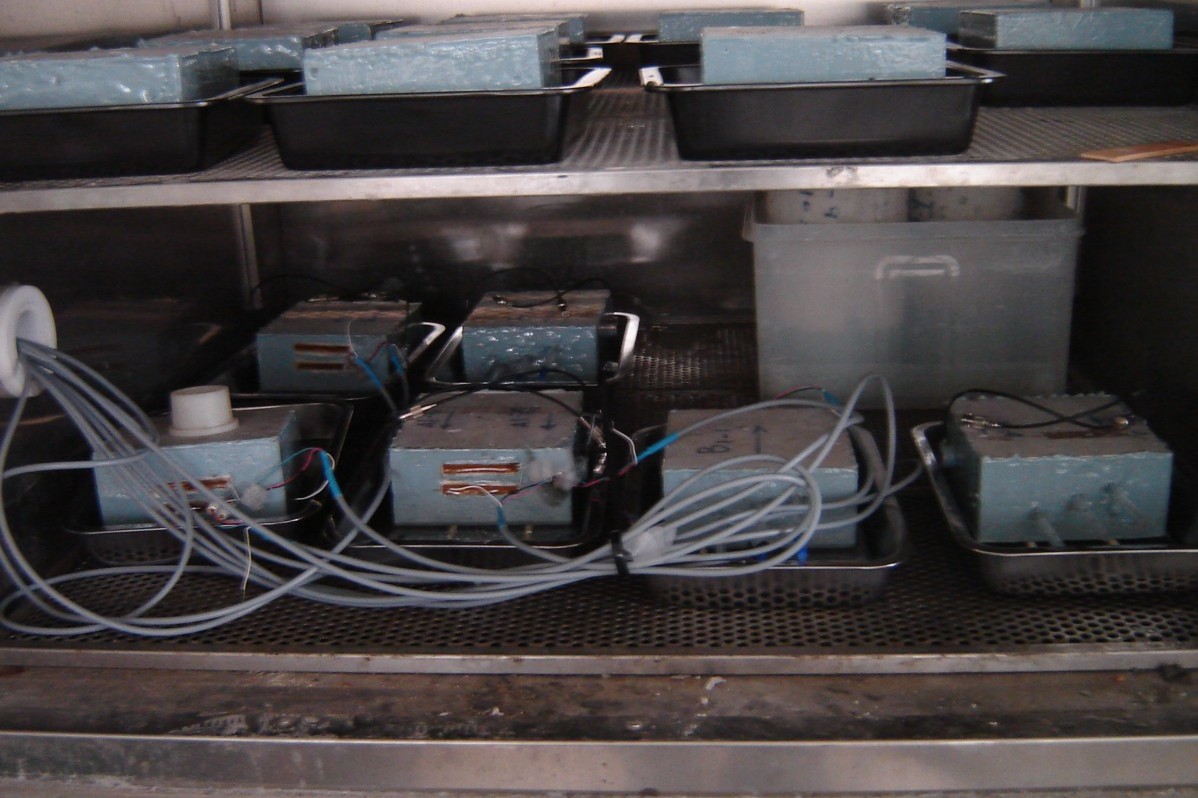 |
|
Climatic chamber |
Test tubes in climatic
chamber |
|
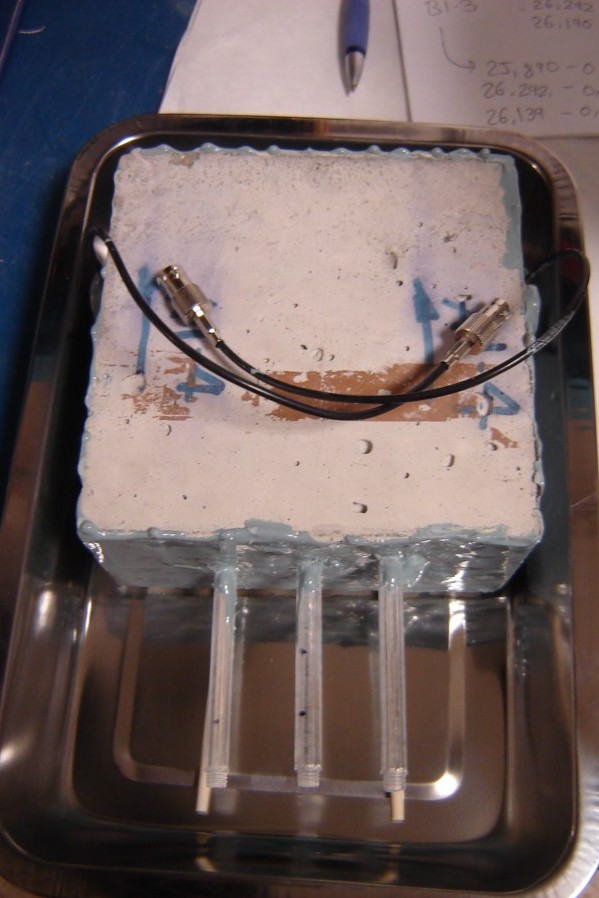 |
| Test tube
with sensors of the degree of saturation |